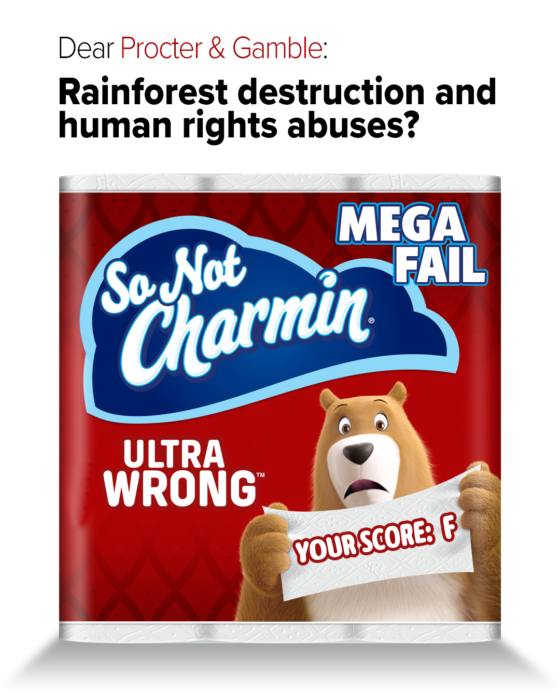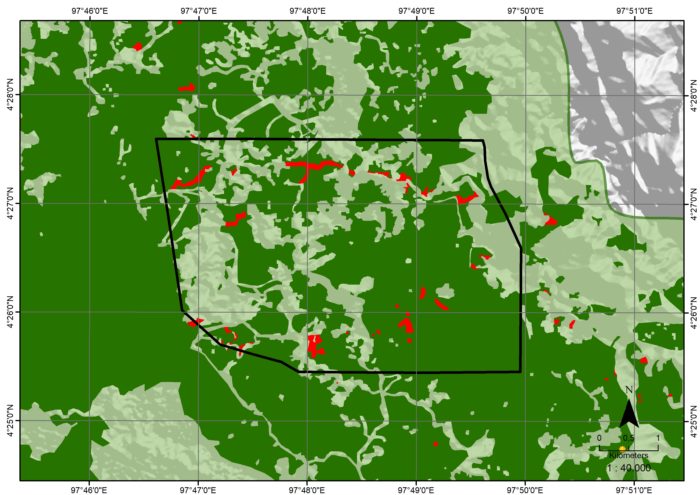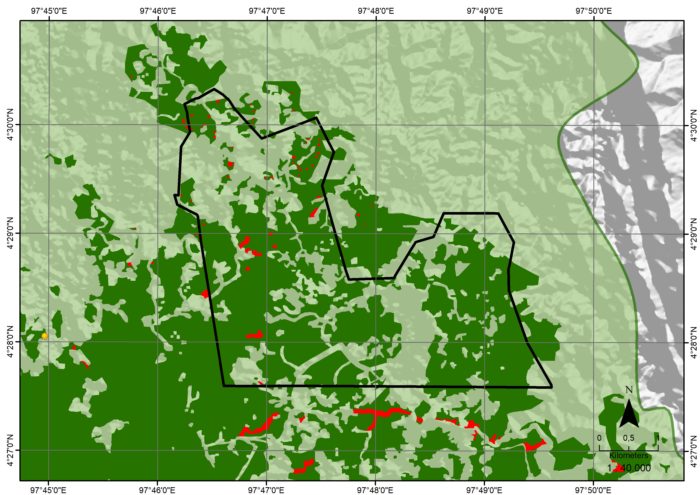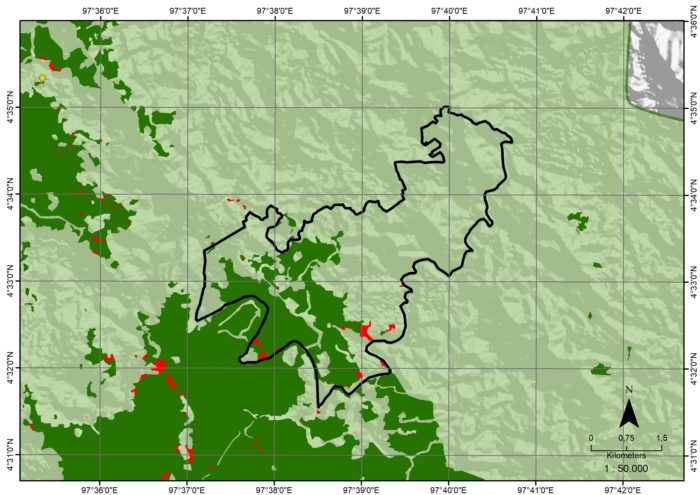Despite years of consumer outcry and public promises, major food brands still cannot guarantee they are not sourcing Conflict Palm Oil from Leuser forests
During the month of March, RAN has documented rampant destruction of critical lowland rainforests within the protected Leuser Ecosystem by notorious palm oil companies and logging crews, in the region of Aceh Timur, Sumatra. The fate of thousands of acres of remaining forests hang in the balance as major brands like Procter & Gamble fail to respond in a meaningful way to prevent deforestation and sourcing from rogue actors driving the destruction of this global biodiversity hotspot.
This ongoing forest loss is occurring despite years of understanding that the demand for palm oil by these brands is driving plantation expansion into these lowland rainforests––the last place on earth where Sumatran elephants, tigers and orangutans thrive together in the wild.

PT. Nia Yulided – a repeat offender – recently named as the worst palm oil company in Aceh, has continued its relentless logging of forests despite increased public attention on its violation of Indonesian government instructions to halt forest clearance. In the month of March alone, over 119 acres of forests were destroyed. Over 4,000 acres of forest remains at risk in this concession. PT. Nia Yulided planted oil palm 2-3 years ago and so will soon be looking to harvest and sell oil palm produced in the concession to nearby mills that are in the supply chain of major brands like Procter & Gamble.

Satellite imagery showing forest clearance within PT. Nia Yulided palm oil concession. March, 2021.
GPS coordinates for locations of clearing are 4°26’3.25″N,97°47’12.12″E and 4°27’1.16″N,97°49’24.35″E
PT. Putra Kurnia is a company with a neighbouring concession located in the lowlands of Aceh Timur and is shown to have resumed forest clearance in March 2021. Almost 30 acres were destroyed inside its concession throughout March. The pattern of clearing appears to be new logging activity––which is no surprise given logging crews have been identified in the region since the beginning of 2021. Over 2,500 acres of forests remain at risk in this concession.

Satellite imagery showing forest clearance within PT. Putra Kurnia palm oil concession. March, 2021.
A third culprit, PT. Indo Alam was exposed in 2020 for setting fire to forests within its concession and for its active connections to palm oil mills supplying palm oil to major brands including Procter & Gamble, Nestlé, Colgate-Palmolive, and PepsiCo. PT. Indo Alam cleared almost 40 acres in March 2021 and almost 1,000 acres remai at risk of deforestation in this concession area, which is in an important corridor for a herd of critically endangered Sumatran elephants.
Procter & Gamble and its peers have failed to take adequate action to ensure that their suppliers have the systems in place to enforce suspensions against PT. Indo Alam. There is no evidence to suggest that the suspensions of purchases have been enforced on the forest frontlines in their palm oil supply chains or that the claims of their suppliers have been independently verified. After years of exposure and consumer outcry, there is still not a single brand that can provide assurances to their customers that the consumer goods products they make are not made using palm oil produced by this rogue palm oil company at the expense of the rainforests of the Leuser Ecosystem.
Procter & Gamble is a prime example. It responded to pressure by establishing a forest monitoring system to identify forest destruction in its palm oil supply chain and published a grievance list,which confirmed that it was sourcing from PT. Indo Alam. Procter & Gamble claims to have called on its suppliers to suspend sourcing from PT. Indo Alam and it has ‘closed’ the grievance on the basis of its suppliers claims that they have stopped sourcing from the company since September 2020. Procter & Gamble has not deployed teams to the field to verify the claims made by its suppliers–even though the mills it sources from in the region lack the systems needed to be able to guarantee that they have stopped sourcing from PT. Indo Alam.

The lack of adequate action is not just occurring in the Leuser Ecosystem. RAN recently published the results of an evaluation of the performance of Procter & Gamble and its peers which found that these brands have failed to stop deforestation and human rights abuses in their business practices across Indonesia and global commodity supply chains.